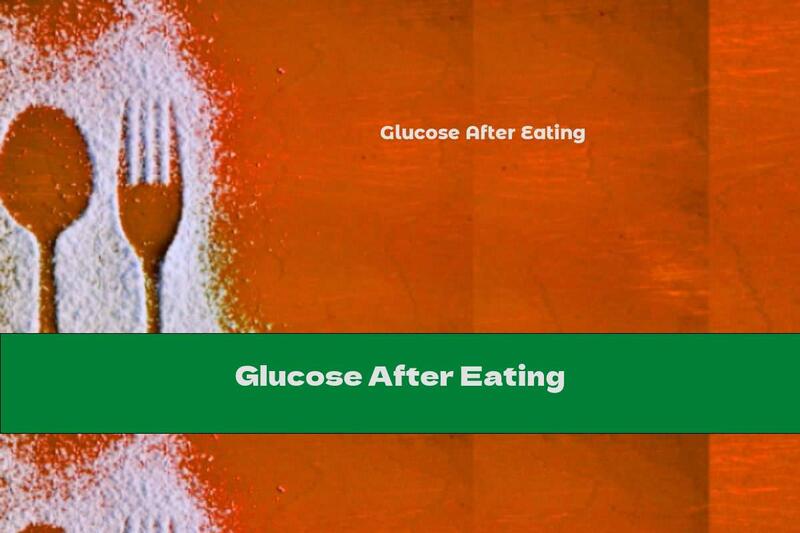Glucose After Eating
 Author: Dean Rouseberg
Time for reading: ~4
minutes
Last Updated:
February 20, 2026
Author: Dean Rouseberg
Time for reading: ~4
minutes
Last Updated:
February 20, 2026

CHAPTERS (Table Of Contents)
Learn more information about glucose after eating. In this article we'll discuss glucose after eating.
That’s the quantity of energy the body takes to digest and procedure a meal, given off in component as waste warmness.
Glucose After Eating 2 Hours
If you are taking humans and deliver them the precise same meal in the morning, afternoon, and night, their body makes use of up about 25 percentage extra calories to method it within the afternoon than night, and about 50 percent greater calories to digest it inside the morning. That leaves fewer net energy in the morning to be saved as fat.Let’s placed a few actual numbers to it.
a set of Italian researchers randomized 20 humans to devour the identical standardized meal at 8am or at 8pm, after which per week later had them all come back in to do the alternative. So, everybody had a risk to consume the same meal for breakfast and for dinner.Glucose After Eating 1 Hour
After each meal, the subjects had been area in a “calorimeter” contraption to exactly degree how many calories they have been burning over the subsequent three hours.
The researchers calculated that the meal given in the morning took approximately 300 calories to digest, while the equal meal given at night used up best about 200 energy to procedure. The meal became approximately 1,200 energy, however given inside the morning, it ended up best supplying about 900 calories, as compared to extra like 1,000 calories at night time.Same meal, identical food, equal quantity of meals, however efficiently 100 fewer calories.
So, a calorie isn't just a calorie.Glucose After Eating Sugar
It depends when we devour them.
Why Do We Burn More Calories Eating A Morning Meal—Is It Behavioral Or Biological?
If you started out operating the graveyard shift, snoozing in the course of the day and running all night time, which meal might net you fewer calories? Would it be the “breakfast” you had at night before you went to paintings, or the “supper” you had in the morning before you went to mattress?In different phrases, is it something approximately ingesting before you fall asleep that reasons your frame to maintain on to greater calories, or is it constructed into our circadian rhythm, in which we keep extra calories at night no matter what we’re doing?
Glucose After Eating Sweets
You don’t understand, until you put it to the check. Harvard researchers randomized people to equal meals at 8am versus 8pm whilst beneath simulated night time shifts or day shifts.And no matter hobby level or snoozing cycle, the energy burned processing the morning food was 50 percent better than inside the night.
So, the difference is defined through chronobiology; it’s just a part of our circadian rhythms to burn more meal energy within the morning.Glucose After Eating Mmol
But why?
What precisely goes on? How does it make sense for our body to waste calories inside the morning whilst we've the entire day in advance people?Our frame isn’t so much losing calories as making an investment them.
When we devour in the morning, our body bulks up our muscle groups with glycogen, that's the number one power reserve our body makes use of to gas our muscle groups.Glucose After Eating Diabetes
But this takes energy.In the night, our frame expects to be napping for an awful lot of the subsequent 12 hours, so rather than storing blood sugar as extra glycogen in our muscle tissue, it preferentially makes use of it as an electricity source, which may grow to be meaning we burn less of our backup gasoline (frame fat).
In the morning, but, our body expects to be jogging round all day, so in place of simply burning off breakfast, our body continues to dip into its fat stores while we use breakfast calories to stuff our muscle groups complete of the power reserves we want to move round over the path of the day. That’s where the “inefficiency” might also come from.The motive it charges more energy to system a morning meal is due to the fact instead of simply burning glucose (blood sugar) directly, our bodies are rather using up energy to thread glucose molecules together into chains of glycogen within our muscle groups, which are then just going to be aparted back down into glucose later inside the day.
Glucose After Eating A Meal
That extra meeting/disassembly step takes power—strength that your body takes out of your meal, leaving you with fewer energy. So, inside the morning, our muscle mass are specially touchy to insulin, rapidly pulling blood sugar out of our bloodstream to build up glycogen reserves.At night time, although, our muscle tissue become incredibly insulin resistant.
Our muscle tissues withstand the sign to absorb more blood sugar. So, does that mean you get a better blood sugar and insulin spike in the evening as compared to eating the precise identical meal within the morning?Glucose After Eating Range
Yes.
In that 100-calorie distinction poll, for instance, blood sugars rose two times as excessive after the 8pm meal compared to identical meal in the morning.Related Articles
- The Ultimate Guide to Hickory Smoked Bacon in Nutrition and Healthy Eating
- The Ultimate Guide to Nutritional Eating: Importance, Key Nutrients, Benefits, and Recipes
- The Ultimate Guide to Creating a Well-Balanced Diet Plan
- The Ultimate Guide to Creating a Well-Balanced Diet Plan
- Nutrition and Libido: Boost Your Sex Drive with Healthy Eating